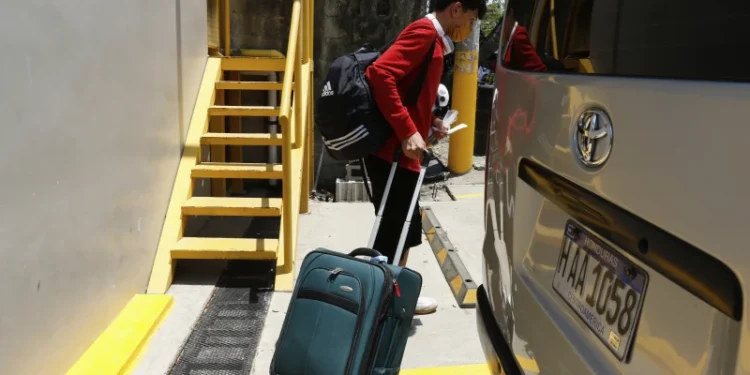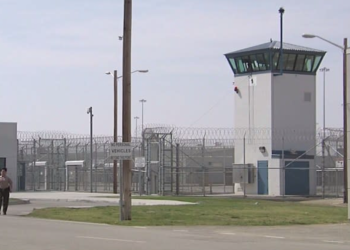The United States on Monday sent 68 migrants from Honduras and Colombia back to their home countries, marking the first official flight under the Trump administration’s new “voluntary deportations” initiative.
In San Pedro Sula, Honduras, 38 of those returning — including 19 children — stepped off a U.S. government –chartered flight, each reportedly receiving a $1,000 debit card and a future opportunity to apply for legal entry into the United States.
The program, promoted as a voluntary return option, is part of President Donald Trump’s broader effort to ramp up deportations. U.S. Homeland Security Secretary Kristi Noem emphasized the administration’s message in a statement:
“If you are here illegally, use the CBP Home App to take control of your departure and receive financial support to return home. If you don’t, you will be subjected to fines, arrest, deportation and will never be allowed to return.”
Limited Appeal but Growing Pressure
Immigration experts say the offer may only attract a small number of migrants who are already considering returning. It has been launched alongside other strict immigration measures, including publicized detentions and the controversial transfer of Venezuelan migrants to a maximum-security prison in El Salvador.
Kevin Antonio Posadas, a Honduran who had lived in Houston for three years, said he opted to return for personal reasons.
“I wanted to see my family and my mom,” Posadas said. “It’s good because you save the cost of the flight if you have the intention of leaving.”
He said the application process was simple via the CBP Home App and completed in three days.
Colombian Migrants Also Onboard
The same flight carried 26 Colombian nationals returning to their country under the same program, according to the U.S. Department of Homeland Security.
Honduras Deputy Foreign Minister Antonio García said the government is providing additional support to returnees — $100 in cash and $200 in store credit at a government-run store that offers essential goods. García noted that four of the children on the flight were U.S.-born.
Speaking with migrants upon arrival, García said many cited worsening conditions for undocumented immigrants in the U.S., including fear of working and heightened hostility.
Deportation Figures Down Year-Over-Year
Despite the administration’s intentions, deportation numbers remain lower than in 2024. Wilson Paz, director of Honduras’ immigration agency, said 13,500 Hondurans have been deported from the U.S. so far in 2025 — down from over 15,000 by this time last year.
“I don’t think it will be thousands of people who apply for the program,” Paz said. “Our responsibility is that they come in an orderly fashion and we support them.”
This marks a new chapter in U.S. immigration enforcement — one that blends financial incentives with increased pressure — as officials test whether self-deportation can ease the strain on the system while maintaining legal deterrents.








